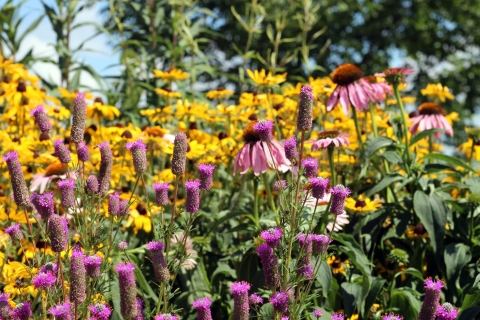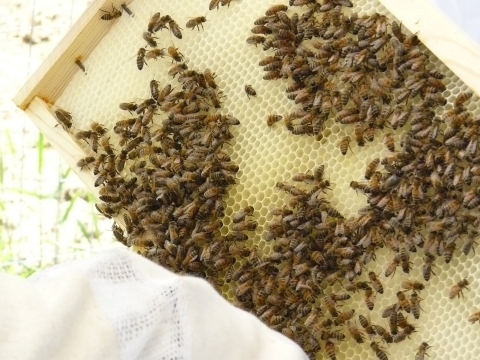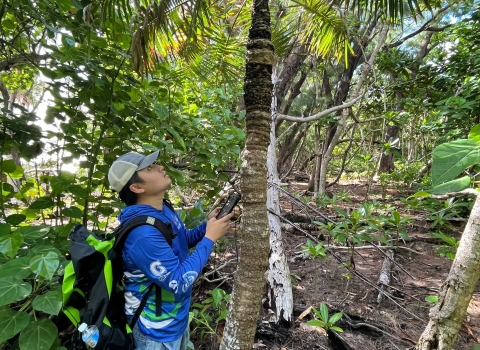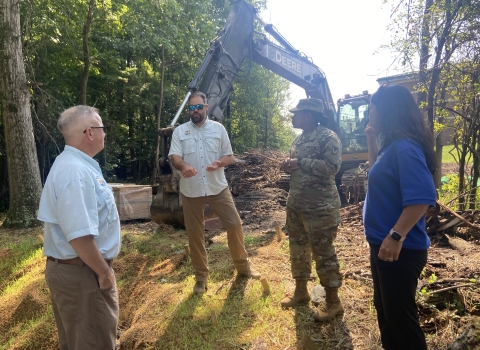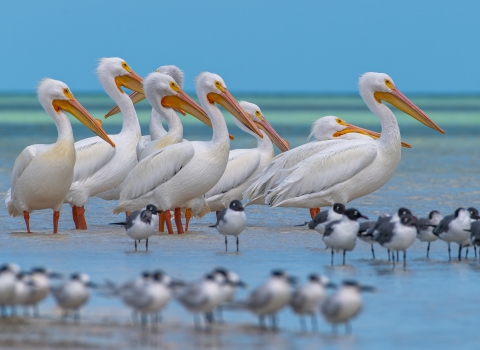Food fosters connection. This is especially evident during the holiday season, when people all over the world meet up with their loved ones to share stories over their favorite meals. Those who do the cooking are often regaled with compliments and gratitude for their efforts (which are well deserved!). Being a chef is no small task. It is a skill supplemented by care, thoughtfulness, passion, and love.
While human chefs certainly deserve their accolades, some very small non-human chefs deserve a shout-out as well. Cue the pollinator chefs!
Pollinators help produce one out of every three bites of food that we eat. Take a second to think of your favorite dish and the ingredients that go into making it. Chances are, that dish couldn’t exist without the help of pollinators. Over 100 types of crops grown in the United States depend on pollination. From pumpkins to figs, to onions, to apples – these delicious components of our meals require a little extra love from nature.
The best way to thank a pollinator for their meal prep assistance is to care for the pollinators that live in your area. Small efforts make a big difference when it comes to these creatures. Here are a few ways to help them out:
Plant a pollinator garden.
This can be done by researching and planting native plants. It’s also helpful to grow native plants that flower at differing times of the year, if possible. This provides increased nectar and pollen sources to pollinators throughout the growing season.
Provide nesting sites for pollinators.
Bees, birds, butterflies, and bats all need safe havens to rest at when they are not busy pollinating. You can support them by creating safe spaces on your property or neighboring areas that include native plants, natural brush piles, and even bee hotels!
Support Native Predators.
Pollinators thrive when the plants they rely on are healthy. When pests invade a garden, native predators act as key players to keep them under control. These beneficial organisms come in many shapes and sizes, some of them doubling their work as pest control AND pollinators. Take the convergent lady beetle as an example. This insect both pollinates and helps manage aphid populations.
It may initially feel less appealing to include space for beetles and harvestmen in your garden, but they play extremely important roles by protecting plants from pests, therefore assisting pollinators.
Check out the Service’s Center for Pollinator Conservation.
The Service launched the Center for Pollinator Conservation in December 2022 with the goal of working together to address declining pollinator populations in North America. This collaborative effort puts pollinators at the forefront of conservation work by raising awareness, educating, and implementing effective management practices. This resource can be used to learn more about the pollinator initiatives the Service is working on and how you can care for your pollinators at home!
By helping pollinators, we help ourselves. As you enjoy your upcoming festive meals, please remember to thank your chefs (both human, and not!). 🐝🦇🦋


